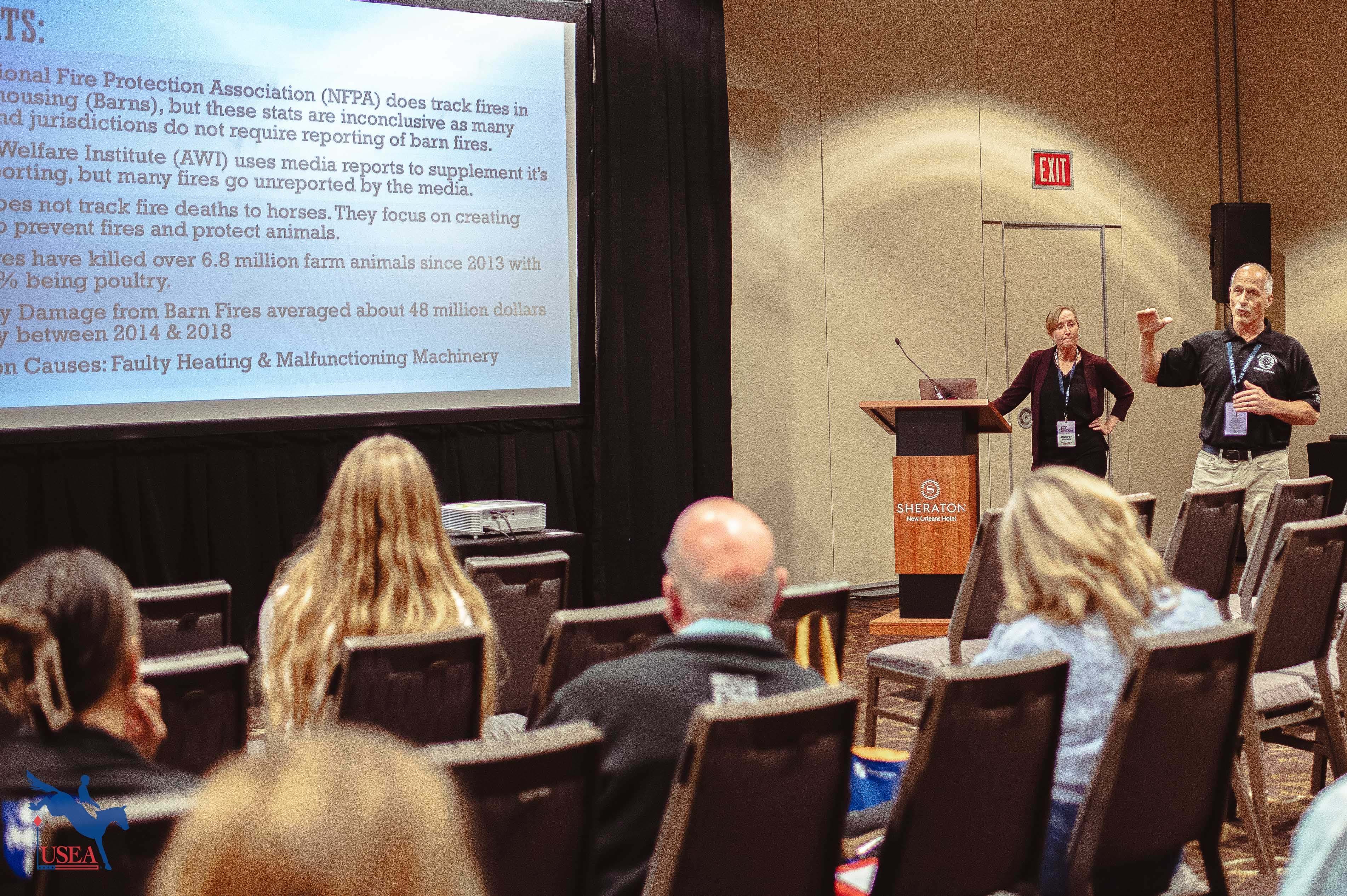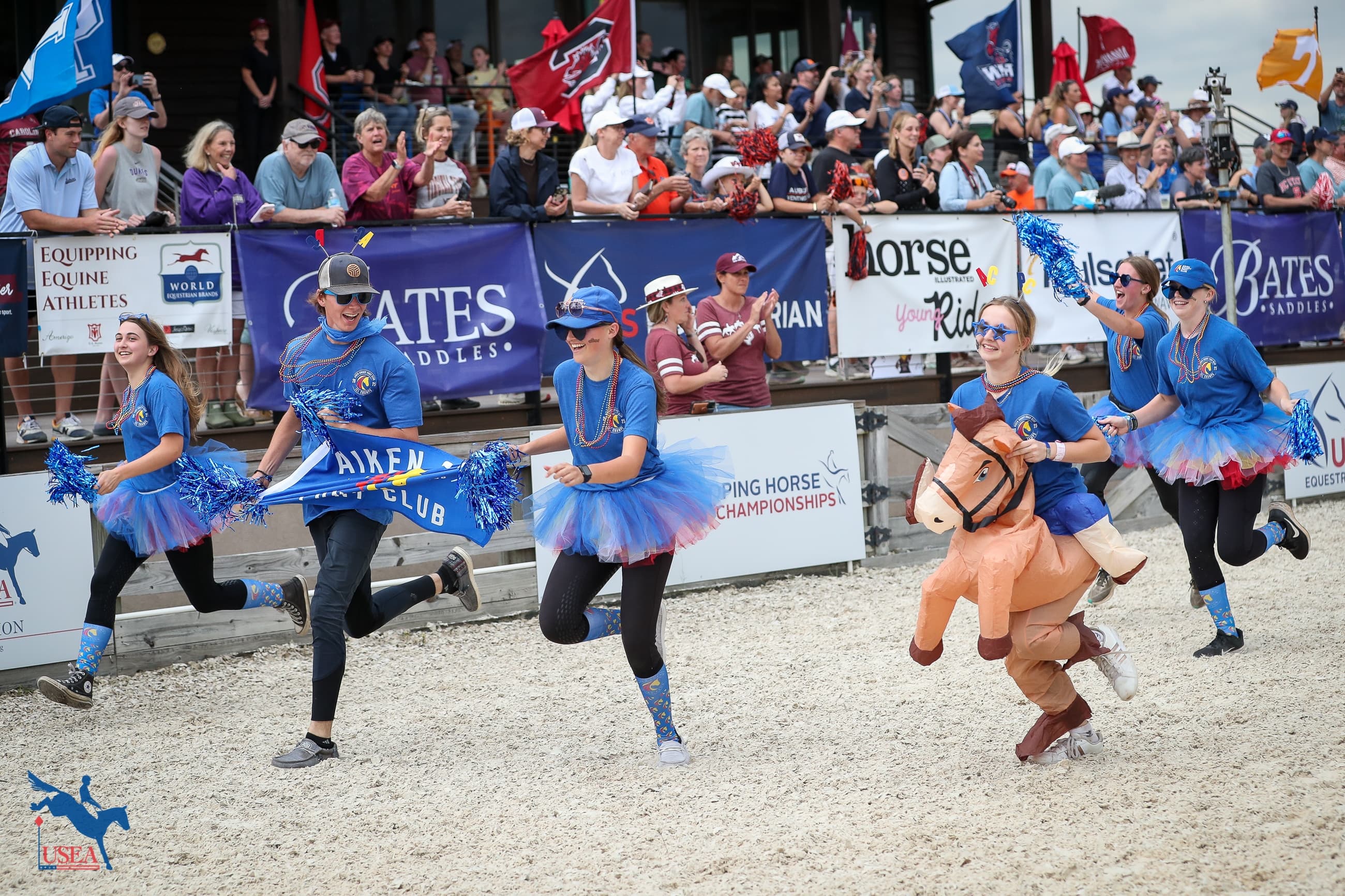A Glimpse Into the ICP Faculty Teaching Days
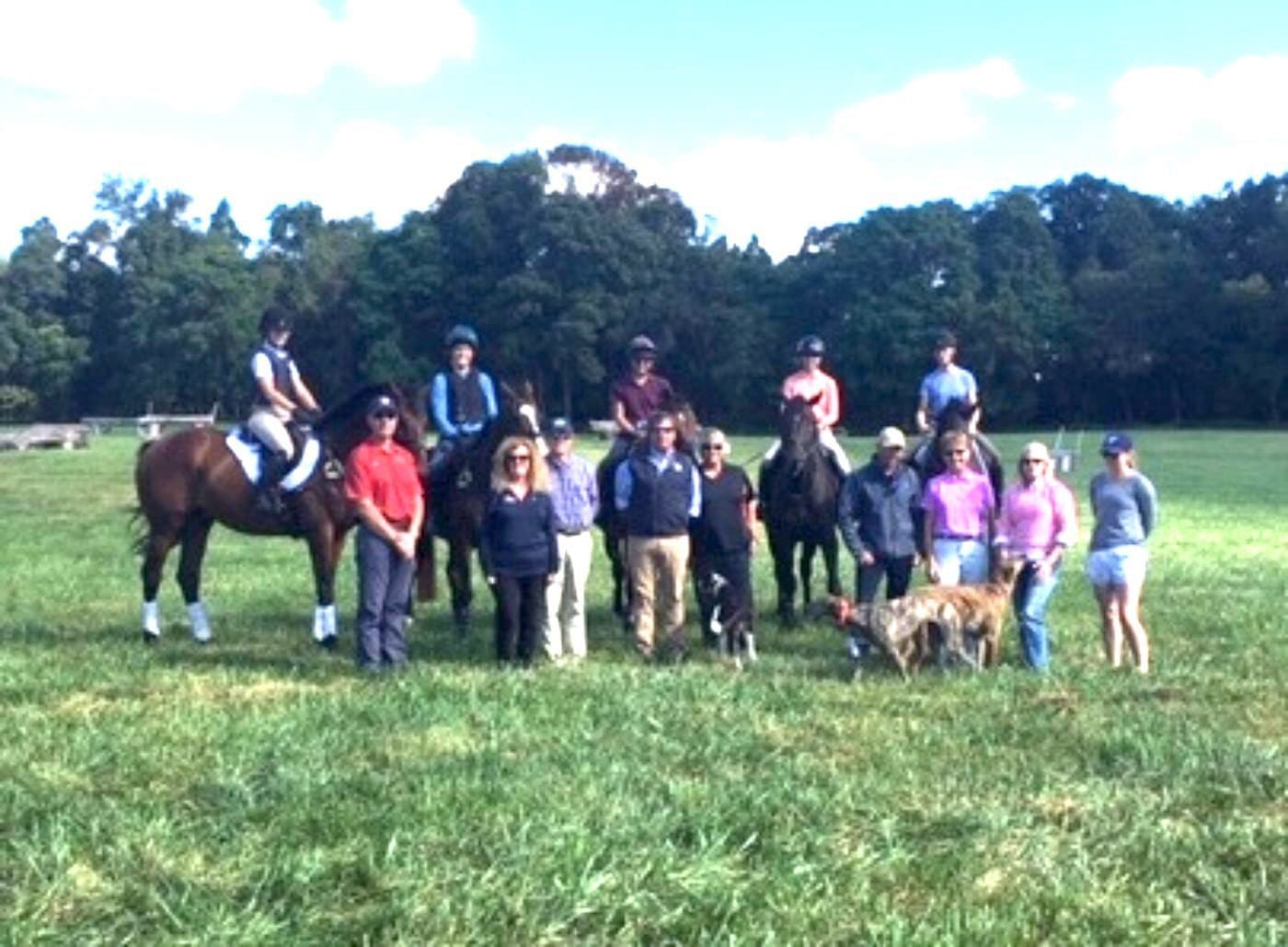
Seven members of the ICP Faculty met September 23-24 at Phyllis Dawson's beautiful Windchase in Purcellville, Virginia, for co-teaching and continuing education. Faculty members took turns teaching and instructing demo riders/horses in cross-country riding lessons. In an evening session, they talked about risk management and SafeSport as it relates to instructors and how new frangible technology is changing the way horses are trained.
Continuing Education
You never stop learning, and you learn from each lesson taught or received. The USEA Instructors' Certification Program (ICP) is about perpetual learning, this is apparent in our faculty members, instructors, and the students taught. The faculty members met in September intending to get each member on the same page and discuss in-depth the future of the sport and how the ICP curriculum needs to evolve to stay up to speed. What pieces are deemed the most important to help produce successful riders and horses?
During the co-teaching demo riders were taught in the cross-country field and a common thread was noticed in each rider/lesson. Riders need to work on their position. The rider's position is the most influential piece to the partnership puzzle, to dictate how the horse will go and how they will accomplish each jump. If the rider is not solidified in their base of support, they cannot expect the horse to listen and rely on them for valuable guidance. Why is this so important? For a rider to be thinking on their feet and ready for any question the horse might throw their way they must be confirmed, by their leg to stay on the horse and support the horse through the exercise. The ability to assess and adjust in the moment is what cross-country riding is about.
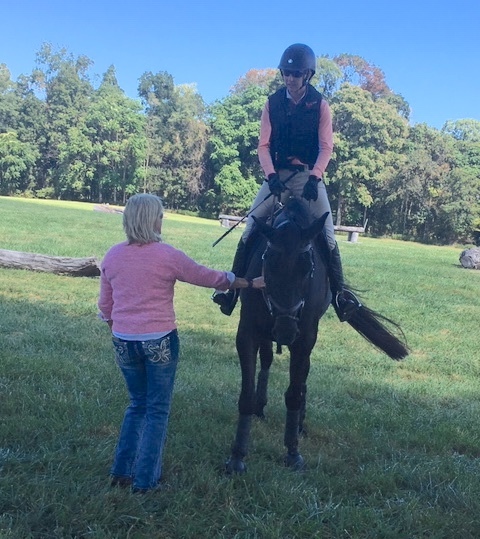
"Being a manager of the strides is a lot harder than creating the energy needed," said Karen O’Connor, reflecting on pace and energy. Riders must focus on having enough energy long before the fence to be able to adjust accordingly without losing the impulsion. By creating good rhythm and balance, the horse can then jump out of stride without seeing and hunting a definitive distance. The rider should not have to change his or her position for the distance to the fence; any change in position is for the balance needed coming to the fence and what is necessary to negotiate the question safely.
Strides and Distances
Robin Walker noticed, “Students and instructors do not spend enough time learning how to walk and measure strides for related distances accurately. Anything under four strides should be measured to distance,” with that being said, the rider must walk their lines and have the alternative routes mapped out in their head. How often on course do you have a plan A, the horse drifts over a fence, or spooks which forces you into plan B or C. As a rider, you must practice these alternative routes at home and rehearse thinking - and riding in - the moment. “Practice at home what you want to take to the competition, your horse will get good at what you practice, make it count,” echoed O’Connor as a rider galloped away to carry out the directions given.
These areas were prominent in all the demo riders, and the faculty feel they are not being taught thoroughly enough or practiced daily. These are necessary to creating safer rounds on cross-country and riders who are successful at the finish flags.
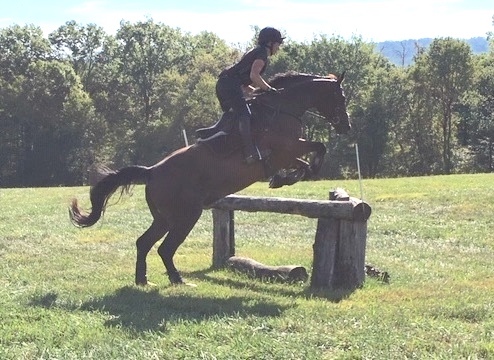
All Riders are Risk Managers
What is a risk manager? This rider can think in the moment and have alternative routes planned in their head for when a problem arises. He or she is equipped with the tools needed for the job - tools that are taught and practiced at home. The ICP strives to teach our instructors these skills to impart to their students. The annual faculty days are an essential pathway to identifying what is lacking in our curriculum and what areas need more attention.
These tools extend from skills practiced in the arena and on the cross-country to the professional relationship between trainers and students. SafeSport has been a hot topic as of late, and for a good reason. The ICP is committed to keeping our instructors and students safe, practicing the following protocols that each certified instructor is competent in:
- USEF SafeSport Training
- Nationwide Background Checks
- CPR and First Aid Certification
- CDC Concussion Protocol Training
As the sport of eventing changes, the ICP is dedicated to discussing and teaching newer techniques needed to suit the different types of fences now seen on cross-country, including obstacles that incorporate frangible pin technology. How do we train our horses for the future of eventing? Fences are no longer sturdy immovable objects that are made for the test of time; now most fences are frangible, portable, and designed with the horse’s safety in mind. While this poses incredible benefits, it also makes for a new type of challenge, in the form of penalty points incurred for engaging the frangible pins. Instructors need to be prepared to teach riders to safely and effectively navigate courses with these types of fences.
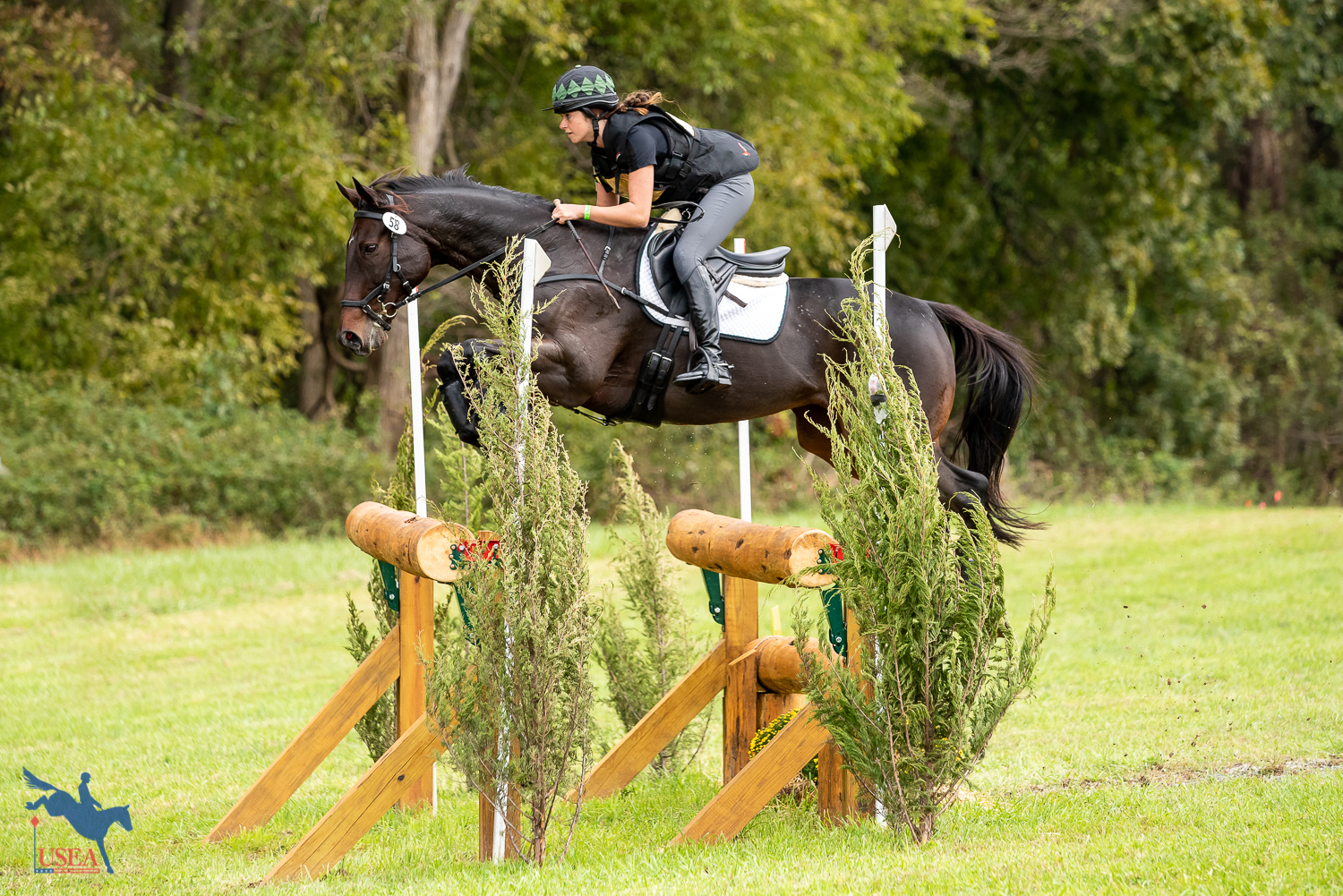
The 2019 USEA Annual Meeting & Convention ICP Open Forum will have hot topics such as:
- Training the horse/rider with frangible pin technology in mind
- Teaching our riders to be “Risk Managers”
- How SafeSport is important for instructors and riders alike
Faculty members identified the need to further discuss training in the era of frangible fences and SafeSport, along with teaching riders to be risk managers, at the upcoming ICP Open Forum during the USEA annual meeting, to be held December 12-15 in Boston, Massachusetts.
They and the rest of the ICP team welcome you to join us for the ICP Open Forum on December 14 to learn and discuss the future of eventing and how the ICP will be a part of it. At the forum we will discuss, accept constructive feedback, and create ideas for the future curriculum of the ICP.
About the USEA Instructors’ Certification Program
Instructors are essential to the training of riders and horses for safe and educated participation in the sport of eventing. The USEA Instructors’ Certification Program (ICP) was initiated in 2002 to educate all levels of eventing instructor with essential training principles upon which those instructors can continue to build throughout their teaching careers. ICP offers educational workshops and assessments by which both regular instructors, Level I through Level IV, Young Event Horse (YEH) instructors, and Young Event Horse professional horse trainers can become ICP certified. Additional information about ICP’s goals, benefits, workshops, and assessments as well as names and contact information for current ICP-certified instructors, YEH instructors, and YEH professional horse trainers are available is available on the USEA website. Click here to learn more about the Instructors’ Certification Program.
The USEA would like to thank EquiAppraisal for sponsoring the Instructors’ Certification Program.

